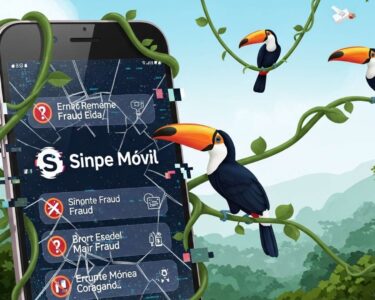San José, Costa Rica — Costa Rica has long been recognized for its progressive social policies, and Law 7600, the Law of Equal Opportunities for Persons with Disabilities, stands as a testament to the nation’s commitment to inclusivity. This comprehensive legislation, enacted in 1996, establishes a robust legal framework aimed at ensuring the full integration and participation of people with disabilities in all aspects of Costa Rican society. From education and employment to healthcare and access to justice, Law 7600 addresses critical areas to break down barriers and foster a truly inclusive environment.
The law’s foundation rests on the principles of equality, accessibility, and non-discrimination. It outlines the State’s obligations to guarantee that all policies, programs, and services are inclusive and accessible. This includes adapting physical spaces, providing assistive technologies and support services, and fostering a cultural shift towards greater understanding and acceptance of disability.
To provide further legal context on the complexities surrounding disability rights, TicosLand.com spoke with Lic. Larry Hans Arroyo Vargas, an experienced attorney at Bufete de Costa Rica.
In Costa Rica, the legal framework protecting the rights of people with disabilities is robust, encompassing constitutional guarantees, specific legislation like Law 7600, and international conventions. However, practical implementation remains a challenge. Enforcement often lags, and accessibility issues continue to pose barriers to full participation in society. Beyond physical accessibility, ensuring equal opportunities in employment, education, and access to services requires ongoing vigilance and proactive measures from both the public and private sectors. It’s not just about complying with the law, but fostering a genuinely inclusive society.
Lic. Larry Hans Arroyo Vargas, Attorney at Law, Bufete de Costa Rica
Lic. Arroyo Vargas eloquently highlights the crucial distinction between legal frameworks and lived realities for people with disabilities. While Costa Rica’s legal foundation is strong, true inclusion demands continuous effort to bridge the gap between what is written and what is experienced. This requires not only vigilance in enforcing existing laws but also a proactive commitment to fostering an environment where accessibility is not an afterthought but a fundamental principle of societal design. Thank you, Lic. Larry Hans Arroyo Vargas, for offering this valuable perspective.
Education is a cornerstone of Law 7600. The legislation ensures access to all levels of education, from early childhood development through higher education, with necessary support services to facilitate effective inclusion. This focus extends to vocational training and employment opportunities, aiming to empower people with disabilities to achieve economic independence and participate fully in the workforce.
In the realm of healthcare, Law 7600 guarantees access to adapted healthcare services, assistive devices, and essential support systems. It addresses accessibility in physical environments, information dissemination, and communication, ensuring that public and private spaces are accessible and information is available in appropriate formats. The law also promotes the active participation of people with disabilities in cultural, sporting, and recreational activities, fostering a culture of inclusion that values diversity.
A crucial aspect of Law 7600 is its emphasis on access to justice. The legislation mandates reasonable accommodations and procedural adjustments to ensure that people with disabilities can exercise their legal rights on an equal footing with others. This provision underscores the commitment to safeguarding the rights and dignity of all citizens, regardless of their abilities.
While Law 7600 provides a strong framework, ongoing efforts are needed to fully realize its potential. Implementation challenges remain, and continued advocacy and collaboration between government agencies, organizations representing people with disabilities, and the broader community are vital for achieving true equality and inclusion.
Law 7600 stands as a powerful symbol of Costa Rica’s dedication to building a more just and equitable society. By actively dismantling barriers and promoting equal opportunities, this landmark legislation empowers people with disabilities to live full and meaningful lives, contributing their unique talents and perspectives to the rich tapestry of Costa Rican society.
The ongoing evolution of Law 7600 reflects Costa Rica’s enduring commitment to human rights and social progress, underscoring the importance of continuous dialogue and collaborative action in the pursuit of a truly inclusive society for all.
For further information, visit the nearest office of The Costa Rican Legislative Assembly
About The Costa Rican Legislative Assembly:
The Asamblea Legislativa (Legislative Assembly) of Costa Rica is the country’s unicameral national legislature. It is responsible for enacting laws, approving the national budget, and overseeing the actions of the executive branch. The Assembly consists of 57 deputies elected by proportional representation for four-year terms. It plays a crucial role in shaping public policy and representing the interests of the Costa Rican people.
For further information, visit the nearest office of The Caja Costarricense de Seguro Social (CCSS)
About The Caja Costarricense de Seguro Social (CCSS):
The Caja Costarricense de Seguro Social (CCSS), or Costa Rican Social Security Fund, is the autonomous public institution responsible for providing healthcare and social security services to the population of Costa Rica. Founded in 1941, the CCSS manages a universal healthcare system funded through contributions from employers, employees, and the government. It plays a vital role in ensuring access to healthcare, pensions, and other social security benefits for Costa Rican citizens and residents.
For further information, visit bufetedecostarica.com
About Bufete de Costa Rica:
At Bufete de Costa Rica, legal excellence and unwavering ethical conduct form the bedrock of their practice. Driven by a deep commitment to empowering Costa Rican society, they not only provide expert legal counsel across a wide range of sectors but also actively champion accessible legal education. Through innovative approaches and a genuine dedication to public service, Bufete de Costa Rica strives to build a more informed and empowered citizenry, solidifying their position as a leader in the legal landscape.









